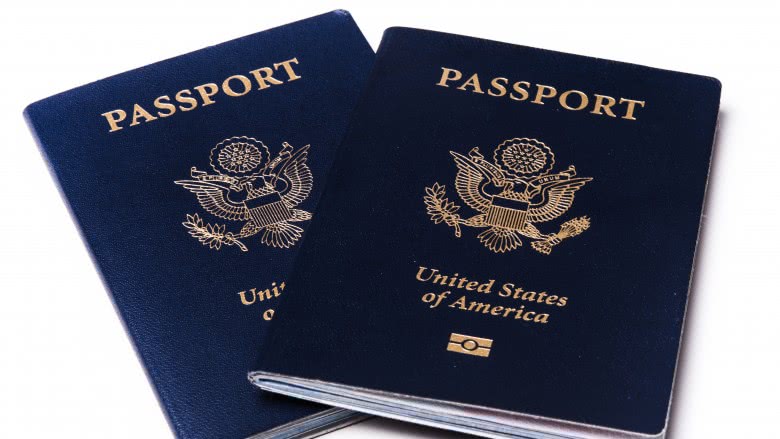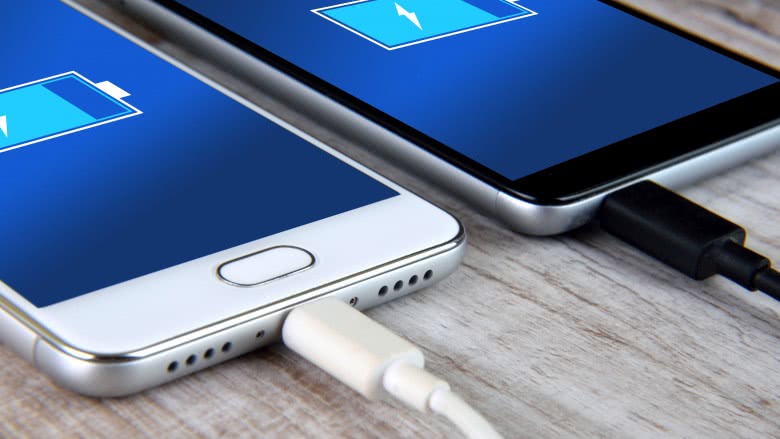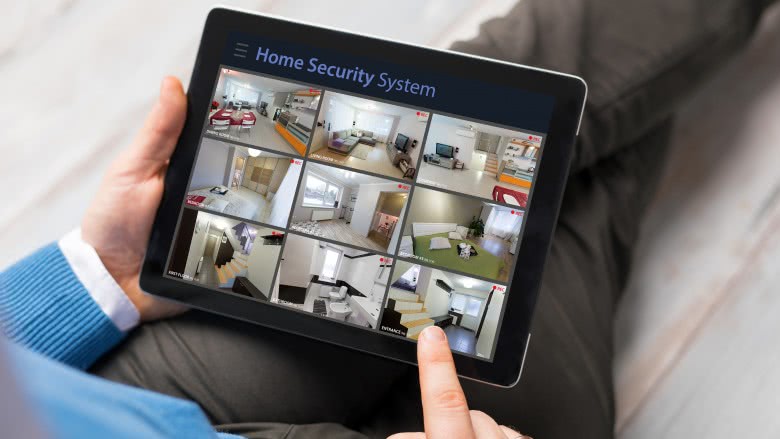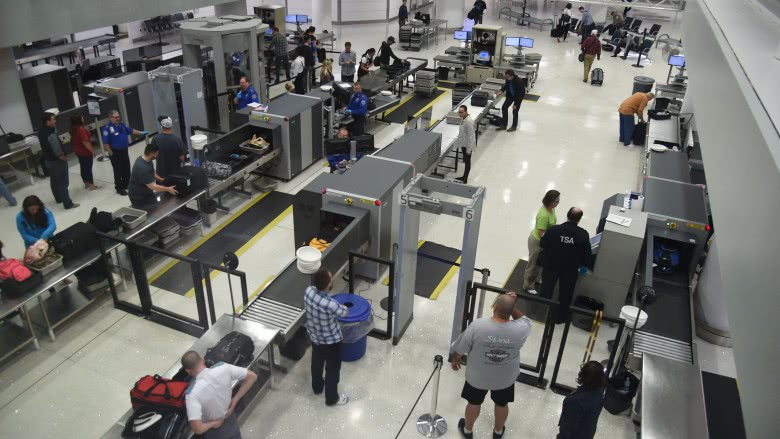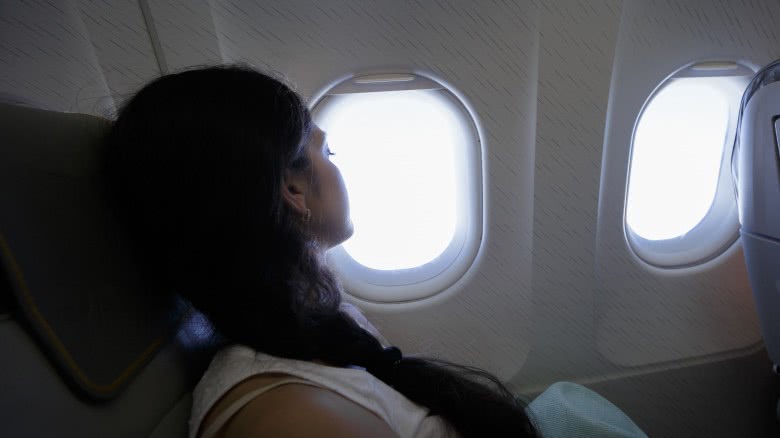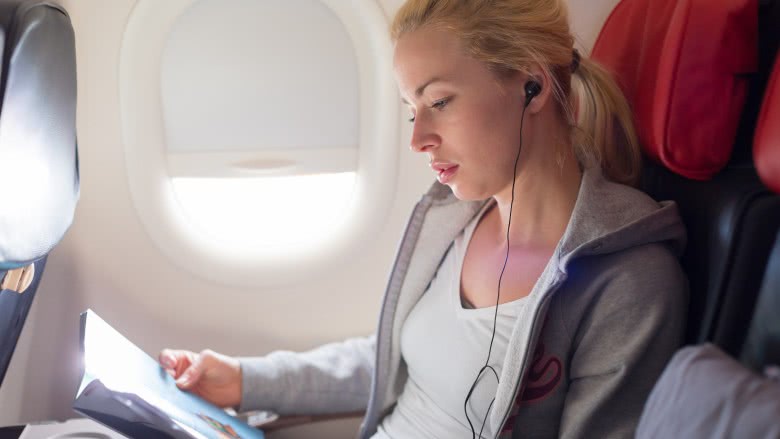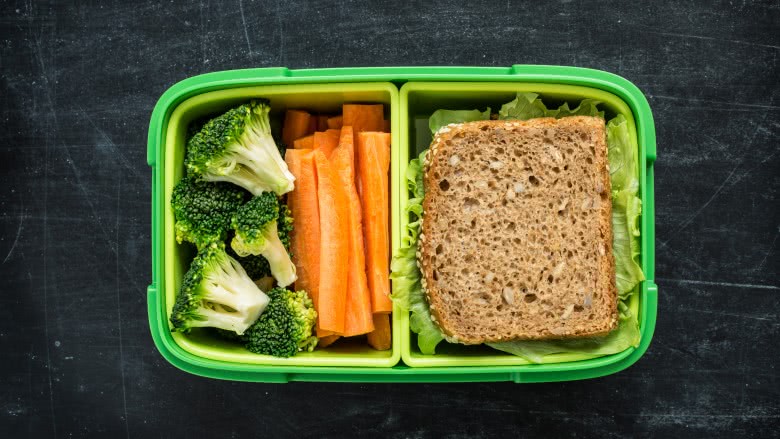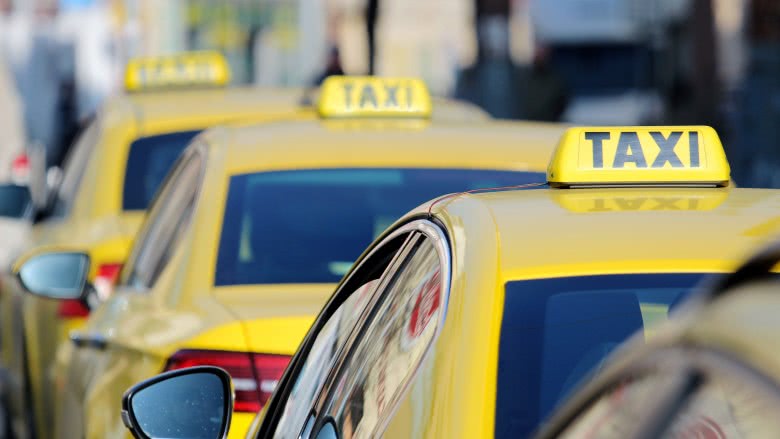Things You Should Always Do Before Getting On A Plane
Air travel is stressful, no doubt about it. Even if you're flying first-class, you're still subject to delays, turbulence, other people, and the whims of mother nature. However, with some forethought and planning, you can avoid potential pitfalls that range from mildly annoying to extremely problematic.
Here's a list of the ten most important things you should do before boarding a plane that will make your in-flight experience as worry-free as it can be.
Have the right ID
One of the most important things you need to do before you fly is make sure you have the correct identification. Otherwise, they won't let you past baggage check or on the plane without conducting a procedure to confirm your identity, which could take time you may not have.
If you're flying domestic, you'll be fine with a valid, state-issued driver's license or identification card. If you don't have one, check out the ID requirements to find an alternative. And if you are flying internationally, you'll need a passport (or passport card in some cases); any ID that is expired will be deemed inadequate. If you're traveling overseas or otherwise internationally, make several photocopies of your passport. Travel agent Liz Dahl, founder of Boomer Travel Patrol, told me, "Things happen and if you lose your passport, it will ruin your entire trip. Make two copies, one to carry with you in a separate area from your passport, and leave one with a friend or family member." This will be a huge help if you need to go to the embassy to get your passport replaced.
Note that there are some changes in the works, to be sure to check out the ID requirements issued by the Transportation Security Administration before every trip. For example, starting on January 22, 2018, your ID needs to be compliant with the REAL ID standards, which may impact travelers from some states. And if you can swing it, get your passport even if you don't plan to travel internationally as it's a valid federal ID acceptable for all commercial flights.
Charge your devices
Most of us have a variety of electronic devices that we use on a daily basis, like our smartphones, tablets, and MP3 players (for those of us who still hang onto them). If you're bringing them with you for your flight, you're going to want to make sure that each of these is charged before you board; while some newer planes have outlets at each seat for passengers, many do not, and you don't want to be stuck on a plane with a dead phone.
Don't forget to bring the proper charging cables for your devices should you need to charge them en route or at your destination. In addition, it's a good idea to consider portable chargers. Kyle Stewart, travel editor at TravelCodex.com and editor at PenAndPassport.com, told me, "Backup power supplies are inexpensive and can help save you in a jam. Power some up the night before and put one in your carry-on, and if you are traveling with someone else, one in their carry-on too."
Bear in mind also that your flight(s) could be delayed or canceled, which makes having a charged phone of paramount importance should you need to re-book your flight and notify friends or family.
Prepare your house or apartment
Every traveler, no matter how seasoned, has to make sure everything is squared away at home before they leave. So to prepare, first, make sure that everything (doors, windows, etc.) is locked up, and if you have an alarm, set it accordingly. If you have a friend or trusted person who can stop by in your absence to check in, set up a schedule for them to do so; having someone come by frequently is a theft-deterrent. And consider your light options for additional security. Stewart notes, "Inexpensive wifi light bulbs ($20-40 each) located in key places can be turned on and off via wifi and deter nefarious characters from helping themselves to your belongings while you're gone."
You can save some money prepping your home, too. Stewart said, "Turn the heat down in the winter to a temperature far enough away from freezing water in the pipes (55 degrees is plenty), in the summer there is no reason to run the air conditioning while you are away." And make plans for your mail, especially is no one will be stopping by. You can contact your local post office to have it held for the duration of your trip. Stewart adds, " You should also defer your mail delivery from one day before your departure and until one day after you return as the request may take more than a day to enter the system with the USPS."
If you have pets, ensure that they are fed via automatic feeder, or have a pet-sitter come by to check on them, walk them, and take care of any other related duties. You can find referrals for pet care at your local veterinarian's office. This is important even for short trips. Finally, secure any valuables in a safe deposit box at your local bank. You can never predict if you might be the victim of a home invasion, so set any irreplaceable items aside for safe care.
Check TSA regulations
The transportation security administration has a lot of regulations that passengers have to follow in order to fly. And while some are not intuitive — in some cases, they may seem absurd — it's still critical to adhere to them.
For example, you cannot bring liquids over 3.4 ounces with you through security. I've seen countless beverages tossed by TSA officials to the chagrin of unknowing passengers. If you're going to bring liquids over 3.4 ounces, pack them in your checked luggage. Additionally, if you're traveling with a laptop computer, you have to take it out and have it screened separately when you're going through security, but e-readers, smartphones, and tablets can stay in your carry-on bag. Finally you have to remove your shoes when going through security as well, unless you qualify for an exemption.
Those are just some of the regulations in place now. They change regularly, so that's why it's important to check them before every trip.
Go to the doctor
There's a variety of reasons to drop by your general practitioner's office before you board. For one, have her check and make sure that you're healthy so no adverse medical events happen to you in the air. This is especially important if you are pregnant or have another medical condition that needs monitoring.
Secondly, you'll want to make sure all of your prescriptions are filled and up-to-date for the duration of your trip. Coordinate with your doctor if you need to get refills overseas, and if necessary, bring some Cipro with you if you're going where you might need it.
Third, get any vaccinations that you may need if you're traveling internationally; you can check what you need to get by country with the CDC. Finally, see what your doctor recommends to stay healthy while flying. She may recommend hand sanitizer, for example, to prevent the spread of germs from the lavatory, etc.
Dress accordingly
What you wear can have a significant impact on the quality of your trip. For one, you want to make sure you're able to relax during your flight, so avoid anything that might disrupt that, including overly tight clothing or uncomfortable shoes. It's also smart to bring a light jacket or hoodie as the temperature inside the planes can fluctuate. In a pinch a hoodie can double as a pillow should you find yourself sleepy, too!
Secondly, wear close-toed shoes that protect and insulate your feet. The floor of planes can get pretty dirty (especially in the lavatory), so make sure your feet and socks are not exposed to germs that might be there. As Stewart observes, "Always, always, always wear foot protection in the lavatory – that's never water on the floor."
Finally, don't wear anything that might disrupt other passengers, like perfume or after-shave. When you're in such close proximity to others, it's important to consider that they may have allergies or other scent sensitivities.
Withdraw the right amount of cash
You never know when a power outage can shut down credit card readers, or if your regular airport ATM might be down. So even if you don't carry cash on a regular basis, it's super important to do so while traveling. This is especially important for international travelers (though it's relevant for domestic travelers too).
But make sure you withdraw the right amount and plan accordingly. Stewart told me, "Avoid the mistake of taking out excessive amounts of cash prior to a trip. It is far more secure, cheaper, and more convenient to withdraw cash abroad than it is to take it out and carry it with you. Why? It's more secure because cash is irreplaceable if lost or stolen."
So for Stewart, you only need to have enough cash to get you through the day. And how much is that? Stewart said, "After 53 countries and hundreds of cities, flying 200,000+ miles every year, I take about $100-200 USD in crisp and new serial $100 bills and convert a small amount if the airport ATMs are inconvenient, or the bank blocks my transaction. This is enough to get me to the hotel and through a day typically until I can resolve the matter."
Have something to do on board
For most of us, long plane rides with nothing to do can become purgatorial, especially when it's cloudy and there's nothing to look at out of the window. In order to avoid staring into space for hours at a time, bring a few different things to do with you on the plane.
You'll already have your smartphone, which as long as you can keep it charged, can be plenty entertaining if you enjoy playing games or listening to music, podcasts, etc. on it. If you have a back-up listening device like a dedicated MP3 player, it can't hurt to bring that as well so you're not reliant one one device for everything. I always bring an e-reader with me as well, loaded with a book or two so I'm not stuck relying on having internet access (which you may or may not have on your flight). It's also smart to bring a traditional book in case you don't have access to charging stations for a long period of time, such as in the case of extended delays.
Finally, if you have a tablet, load it full of movies and TV shows you like to watch as not all planes have in-flight entertainment. That can burn hours of your trip.
Bring food
Even though you can't bring beverages through the security check, you can bring food, which is a smart move. Travel agent Dahl told me, "Food is low on the priority list of airlines, especially if you're in coach class, so don't wait until you get to the airport to buy your snacks — save the money for your trip." I highly recommend doing this as not only will you have what you know you like to eat, but also you'll avoid airport and airplane food that can be super expensive. You might also find your options limited if you're at a smaller airport, if your short on time, or if you're flying during off-hours.
Obviously you shouldn't bring something that needs to be heated as you're not going to have access to a microwave. And avoid bringing food with strong odors out of consideration for your fellow passengers. But by all means, pack a sandwich, last night's leftovers, some fruit, or some nuts to get you through the trip.
This is more of an issue for domestic travelers, as international flights still give you complimentary meals. Still, even if you don't bring a full meal, having a snack when you want one is important.
Plan your ground transportation
Whether you're flying home for the holidays or heading out of town for a business trip, you've got to have a plan for how you'll get around once you hit the ground. In the days before ridesharing apps this was more of an issue, but you still need a plan so you don't end up stuck at the airport or late for a conference. So if you have friends or family in the area, arrange to have them pick you up. If not, research the public transportation system at your destination and figure out if you can use it — you're likely to save money (over a taxi or shared ride). If you're staying at a hotel, find out if they have a hotel shuttle that can pick you up.
If you're traveling abroad, make sure you put safety first. Stewart told me, "Both going to the departure airport and at your arrival airport you should look into options before your departure. Uber and other ride sharing apps are not always permitted at the airport depending on the municipality." And if you're going to places where fare can be "fluid," Stewart says it's imperative to do some research beforehand. "Look up what you should be paying and always insist they turn on the taxi meter."
Finally, make sure the car and driver are legit. Stewart told me, "Never, ever get in an unmarked taxi, and never ever get transportation through a private source at the airport. Safer is better even when it is more expensive."
Be prepared
Overall, it's important to be prepared for anything when you're getting ready to fly. You need to plan for contingencies, make sure things are taken care of both at home and at your destination, and don't leave anything to chance. Always have a back-up plan if you're delayed, and allow yourself the time you need to do your trip right. That's a surefire way to have the best trip possible.

